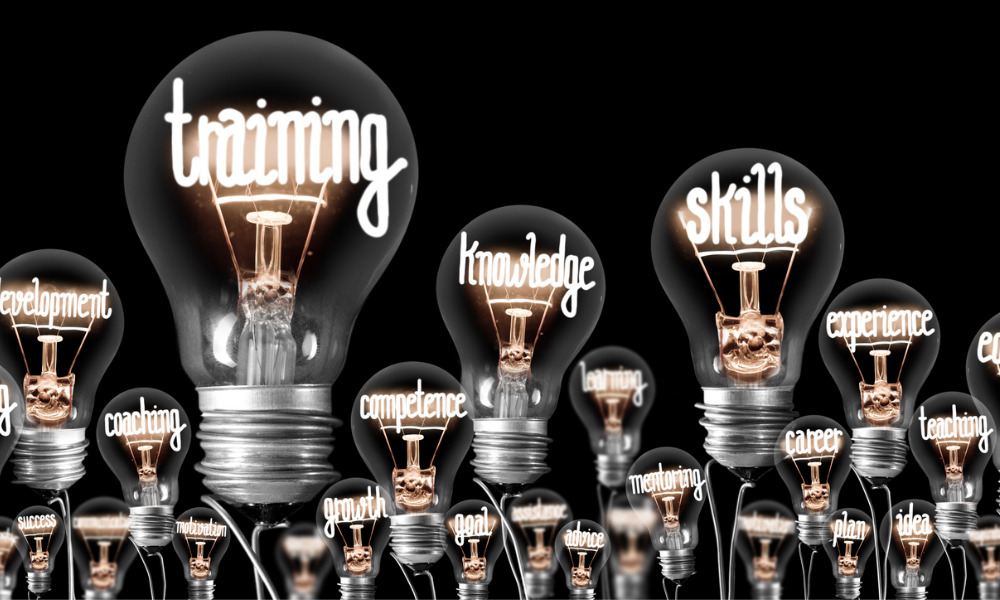
The pandemic changed employee expectations around upskilling

The pandemic changed many things, not least how we view our personal and professional development. During the COVID chaos, many people took it upon themselves to reskill, upskill, and supercharge their own learning – a trend that has been carried over into the workplace. Speaking with Lauren Weinstein, Director of Leadership Development at Degreed, she revealed how employee expectations have changed since the onset of 2020.
Read more: How to support LGBTQ rights at work
“I think there are two main lessons that business leaders have learned from the pandemic, when it comes to learning in the workplace,” she told HRD. “First, the importance of virtual and hybrid learning — and the systems that ensure this runs smoothly. When the pandemic happened, business leaders couldn’t simply push the pause button on learning. If anything, learning and development needed to speed up, with 58% of leaders stating that closing skill gaps in their companies’ workforces became a higher priority during COVID – according to a report from McKinsey. So many L&D teams began relying on setting up systems and processes to design and facilitate virtual learning as a way to continue upskilling people — while keeping them safe, readying them for future needs or immediate pivots, and adapting to the global lockdowns and mass working from home.”
Moving forward, Weinstein believes this increased uptake in virtual and hybrid learning will provide L&D leaders with an opportunity to personalize the learning experience for employees while also creating options for when and how people learn.
Read more: Unifor launches probe into allegations Dias broke union's constitution
“L&D Leaders can gather insights on what topics most interest employees, what learning content they’re engaging with, even meta-insights like when they’re learning and on what device,” added Weinstein. “All of this information can be used to inform future learning strategies.”
The second lesson Weinstein revealed to HRD revolved around the skills that businesses need to cultivate in 2022 and beyond.
“The C-Suite now has a greater focus on cultivating resilience skills,” she told HRD. “Demand for interpersonal skills such as empathy nearly doubled last year. Power skills aren’t something easily taught in a classroom. People need to experience real-world lessons and make sense of them in order to build their resilience, improve their communication, and learn how to better empathize with others.
“Even skills like coaching, which is a core skill for all people managers today, need to be reimagined as experiential learning opportunities. For example, it’s easy enough to learn about coaching theory via a course, videos, books or podcasts; but for many learners to actually build this skill, they need to practice and embed coaching into their day-to-day work. At Degreed, we’ve created a coaching community of practice to help beginners and experts alike share their knowledge and continuously grow this critical skill.”
As we move out of a reactive phase of the pandemic and into the Great Reengagement, it’s more important than ever for employers to place a onus on personal development.
“The pandemic gave employees the time to reassess their lives and decide how well ‘work’ is working for them,” Weinstein told HRD. “The answer was the Great Resignation. Many people have realized that they don’t have to stay in jobs that don’t fulfil them, particularly if they have limited opportunity to grow.
“Learning is a key tool to combat the tide of the Great Resignation because employees ultimately want to know that their work is appreciated, their careers are going somewhere, and the 40+ hours they spend at work mean something. Tailored learning opportunities feed into all three areas. For example, a manager might notice that an employee worked particularly hard on a project and it was a big success. Alongside offering praise for it, a more tangible reward can come through the manager offering critical feedback that can help the employee improve further and/or designing a follow-on stretch assignment or course of action that continue to build that employee’s skills for future similar projects.”
To hear more on how you can supercharge your learning culture, download Degreed free whitepaper here.